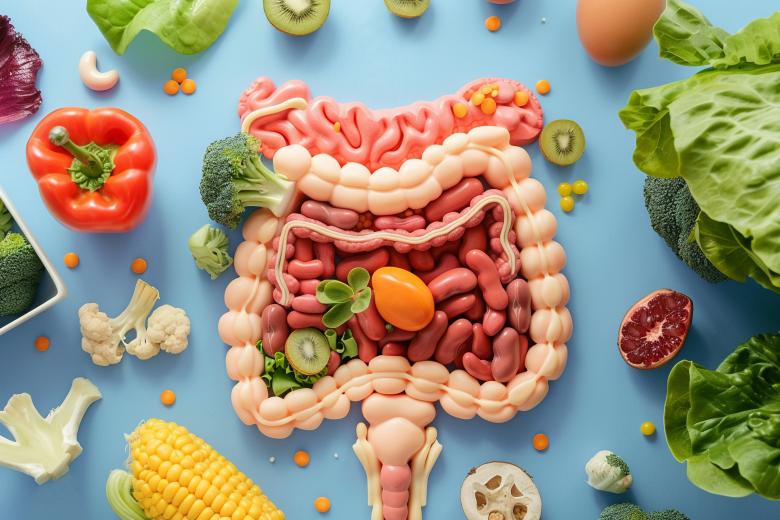“Nice to meet you” NUTRIM PhD Julien Luyten
Beating the odds
Julien, admitted at the last second for the Medicine bachelor. A turning point that led him to research perihilar cholangiocarcinoma, a rare and specific type of bile duct cancer at MUMC+.
The start of Julien’s student journey changed course over one weekend, when he received an admissions mail from Maastricht University on a Friday afternoon. “I applied for the International Track of Medicine (ed. note: now Medicine) at Maastricht University because it was close to my family in Brussels and because of UM’s Problem-Based Learning system. However, I was ranked nr. 51 on a numerus fixus list of 45 students. I didn’t think I would be admitted to Maastricht, so I applied to a university in Brussels. At the very last moment in September, when I was in the middle of my entry exam in Brussels, I received an email from UM saying six students withdrew their admission and I was moved up to nr. 45 on the list!”
Julien had exactly one weekend to prepare himself for student life in Maastricht. He managed to do so and after a bachelor’s and master’s in medicine, Julien is now working as a PhD at NUTRIM and the HPB Surgery department of MUMC+, researching perihilar cholangiocarcinoma, a very rare form of bile duct cancer which is located directly outside the liver, and can potentially block both bile ducts.
A bile detour
Julien is working on two research projects together with a multidisciplinary team. The first sparks debate among surgeons; preoperative biliary drainage for perihilar cholangiocarcinoma is a technique that relieves bile buildup caused by the obstruction of the bile ducts. The method could improve liver function thus reducing the incidence of complications. However, Julien is researching if and why drainage fails to improve prognosis and contradictally, increases the possibility of complications (after surgery). “We found that most hospitals use their own clinical practice guidelines on drainage, based on their expertise. Our team is working on overarching guidelines to improve patient care and outcome.”
The other research project is conducted in the lab. “We look at bile salts in blood, urine and bile and research how they could use these in the clinic as a potential new biomarker, especially in the case of perihilar cholangiocarcinoma” With the two projects combined, Julien aims that physicians can advise a patient to undergo drainage or not and the effect the decision has on the liver’s function.
In short
- Perihilar cholangiocarcinoma is a rare and aggressive cancer that forms in the bile ducts near the liver.
- Preoperative biliary drainage for perihilar cholangiocarcinoma is a technique that relieves bile buildup caused by the obstruction of the bile ducts.
- Julien is researching if and why drainage fails to improve prognosis and contradictally, increases the possibility of complications.
- After Julien's PhD is complete, he hopes to combine a position in a clinic with a teacher role.
Julien is supervised by Dr. Dewulf (HPB-surgeon), by Dr. de Vos-Geelen (medical oncologist), Dr. Schaap (assistant-professor NUTRIM) and Prof. dr. Olde Damink (surgeon and of director of the surgery laboratory).
Hands and heart
When Julien’s PhD is complete, he will gain experience as a physician at the surgery department and if it suits him, apply for a surgical residency position. “I’m highly motivated by the experiences, challenges and adrenaline rushes of a being surgeon, but I want to first experience it as a doctor before fully committing to making it my career.” Whatever he chooses, education will be part of his future. “I get a lot of energy as a teacher, that is where my heart lies. Ideally, I’ll combine a position in a clinic with a teacher role.”
Perhaps Julien’s ambition to pursue a teacher role originated from his time as a student event manager, working at education fairs in Belgium and explaining UM’s programmes to prospective students. “I coordinated several events in Belgium. It was always a lot of fun working together with our team and promoting all programmes of Maastricht University to prospective students.”
Follow more NUTRIM PhD’s and NUTRIM Newbees Instagram account.
If you are interested in Julien’s research or other research projects in nutrition and metabolism after reading this article, make sure to have a look at the Instagram account of NUTRIM Newbees. “It’s a start-up of two students, Xiu Mei and Michal, which I later on also joined, that shows the community, research and life from the perspective of new NUTRIM PhD students.”
Text: Ruben Beeckman
Also read
-
Measuring the true impact of Epilepsy
Epilepsy is a condition that extends far beyond its visible symptoms, affecting the daily lives, well-being, and financial stability of patients and their caregivers. For Darin Elabbasy, PhD student at CAPHRI (VHC), understanding these broader impacts is at the heart of her work.

-
NUTRIM Reflections 2024-2025
Read the NUTRIM Special Holiday Edition Newsletter with the highlights of 2024

-
New technique measures live activity of gut bacteria
Professor Ellen Blaak, PhD Gilian Larik and research team are tracking in MRUM fermentation chambers, how gut bacteria respond to food.
